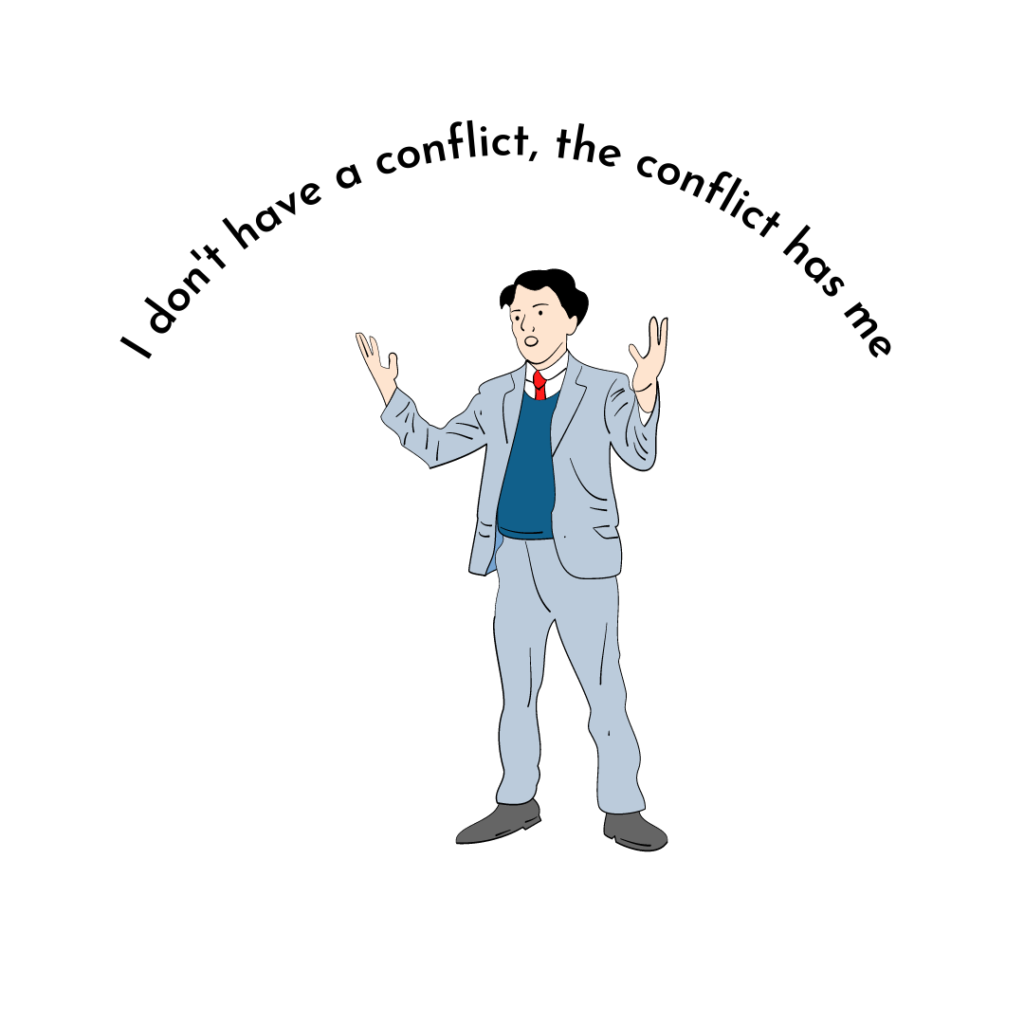Self-awareness in a conflict goes a long way. Let’s see how.
It can happen to anyone. You disagree with a friend and with all kinds of very good arguments, you try to convince them of your point of view. But they don’t follow you and stick to their opinion. It may feel like they aren’t listening and therefore don’t understand you. Impotence and frustration have you in their grip in no time. Your voice grows louder, your body gets tensed, and your thoughts flash in all directions.
Sounds familiar?
A disagreement can quickly escalate. Especially when it comes to a subject that is very close to your heart. It is then the art to look at yourself. What part do you have in this situation and what do you do or say that makes it all even worse? When a fight happens, the conflict grabs hold of you and plays tricks on your thoughts, feelings, and behavior. You often hear people say: “I wasn’t myself anymore”.
You can only control yourself, not others
Once I had an argument with a friend. She and I had a different view on the best way to interpret and apply the corona measures. I thought that she insufficiently recognized the danger and was acting irresponsibly. I know, in terms of judgment, this can count. And that for a professional mediator. Fortunately, I quickly realized that this was far too short-sighted, and I took a critical look at my perceptions, assumptions, interpretations, and emotions. After all, you are in control of yourself, you cannot change what the other person thinks or perceives.
What conflict style do you have?
Did you know that everyone has their own conflict style? By this, I mean that not everyone reacts in the same way when confronted with opposing interests and/or opinions.
Some people go all out for their rights (like me in the example with my friend). Others immediately give in because they mainly want to avoid conflict and maintain a good relationship with each other at all costs. Still, others crawl into their shells and become, as it were, ‘invisible’. Or you argue for what you find very important, but at the same time, you also take into account the wishes and needs of the other person. What do you recognize yourself in the most? Whatever it is, realize that one approach is no better or worse than the other. Each style has its advantages and disadvantages.
Self-awareness is the beginning of the solution
The better you know yourself in a conflict, the more likely you are to turn a tense situation or disagreement into an opportunity, into something constructive, or even into something positive.
You can see conflicts as an invitation to grow. It is an opportunity to get to know yourself (even) better, but also to deepen and strengthen your relationship with the other person. The bond between me and my friend was already strong. But it is even more valuable that we fought a tough battle together, from which we came out stronger as friends afterward.
It doesn’t have to be perfect; it has to be real
That’s how it works on the work floor, with your colleagues, your manager, or your team.
If you create a work environment where people can be themselves and can openly express their opinion without being presented with the ‘negative consequences’ afterward, you’ve come a long way. Let people’s opinions collide, it doesn’t all have to be perfect. Let it be real.
I am convinced that the success of a team is determined by the extent to which the team members are able to express and deal with their individual differences.
Would you like to know more or learn more about conflict management, dealing with resistance, deciding on (moral) dilemmas, and cooperation? Contact me without obligation. I would be happy to work out an offer tailored to your organization.

